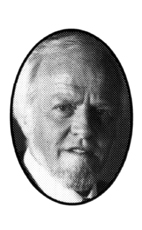Madam Speaker, I too am pleased to rise on this important day, on which the international community celebrates the 48th anniversary of the Universal Declaration of Human Rights.
It was no doubt at the time an important event. It was the end of the second world war and of all the atrocities it engendered. At the time, the 48 members of the League of Nations felt there should be a charter that would serve, as my colleague from Mount Royal said, as a sort of measure to assess progress or the lack of it.
However, certain questions arise. Was it a real desire to mark a new stage in the respect of human rights or was it rather vague declarations that might be described in popular language as wishful thinking? The answer no doubt lies somewhere in between the two. There was wishful thinking, because not a whole lot of progress has been made.
I refer, as proof, to the latest report of Amnesty International, which appeared in June of this year and which mentioned, and I will take the liberty of reading a few paragraphs: "Torture,
arbitrary detention, rape, mass executions, disappearances and human rights violations occurred in 146 countries in 1995". The report obviously criticizes the inaction of the international community.
We learned that there were human rights violations in 146 countries. The report goes on to say that 4,500 prisoners were tortured to death, 140,000 people disappeared and 2,900 people were executed. We might well ask then whether any progress has been made and whether the Universal Declaration of Human Rights achieved the importance it might have.
We could talk about the complicity of the international community, because, in the end, countries are always trying to defend certain interests. There are outrageous paradoxes that we will never understand. How is it, for example, that the five permanent members of the Security Council alone manufacture 80 per cent of the world's armaments? And yet there they are on the Security Council. Do the words still have any meaning?
My colleague, the member for Bourassa, referred earlier to the sad history of genocides. He gave some examples. One is, of course, the elimination of six million Jews. Another is the cruel treatment of Cambodians by the Khmer Rouge. Another is the endless war in the Sudan, now in its tenth year, that is no longer even mentioned in the press, where the government is systematically fighting people in the south, who practice a different religion. There is the former Yugoslavia, of course, where Muslims have undoubtedly been persecuted by Croats and Serbs in equal measure. There is Rwanda, where close to a million people have died in ethnic wars.
The worst thing in the case of Rwanda is that the International Centre for Human Rights and Democratic Development led a mission there in 1992.
They described what they said were all the conditions needed for genocide to happen. The report was submitted to the Secretary General of the United Nations, nothing was done, and the inevitable happened. The genocide took place, and now we find ourselves in an extremely difficult situation in this region.
One of the major problems is the whole question of impunity. Rwanda, Haiti, and the former Yugoslavia are examples. Crimes against humanity are committed and the international community is unable to bring the guilty parties to trial and sentence them.
Remember what happened in Haiti after the military coup. General Cédras was finally persuaded to leave. He was showered with money to help him make up his mind. It was tragic to hear President Aristide, on his return, talking as though reconciliation were possible, when the rule of impunity was in place. In my view, reconciliation-and this is undoubtedly true in Rwanda as well-is not possible unless a minimum of justice has been done.
My colleague, the member for Bourassa, spoke of the need for tribunals. That is elementary. Ad hoc tribunals with minimal powers are established and, eventually, as it just happened in the former Yugoslavia, they try some individuals very low in the hierarchy, but the real culprits always manage to elude pursuit.
What can ordinary citizens do? There are a number of things that can be done. I referred earlier to Amnesty International. Any man or woman in this country may choose to work with Amnesty International to help free prisoners of conscience.
This morning, at the foreign affairs committee, we heard from a NGO known as PEN Canada. There is also a PEN Québec and PEN International. This organization is dedicated to having journalists and authors released from prison. It handles the cases of 900 individuals jailed for their ideas. This is another NGO the public can support financially or through volunteer work.
Here, we have the international centre for human rights, which is government subsidized. This is one of the good things this government has done in terms of human rights. The centre is already operating in a dozen countries, helping non-governmental organizations involved in human rights and other organizations in the civil society get established to ensure that they gradually develop the capacity to face arbitrary or military powers in these countries.
What is missing is any real political will. It is true in many countries, and in Canada as well, unfortunately. In its last foreign policy statement, Canada put trade relations before human rights. Such an action certainly does not do much in terms of promoting human rights around the world.

